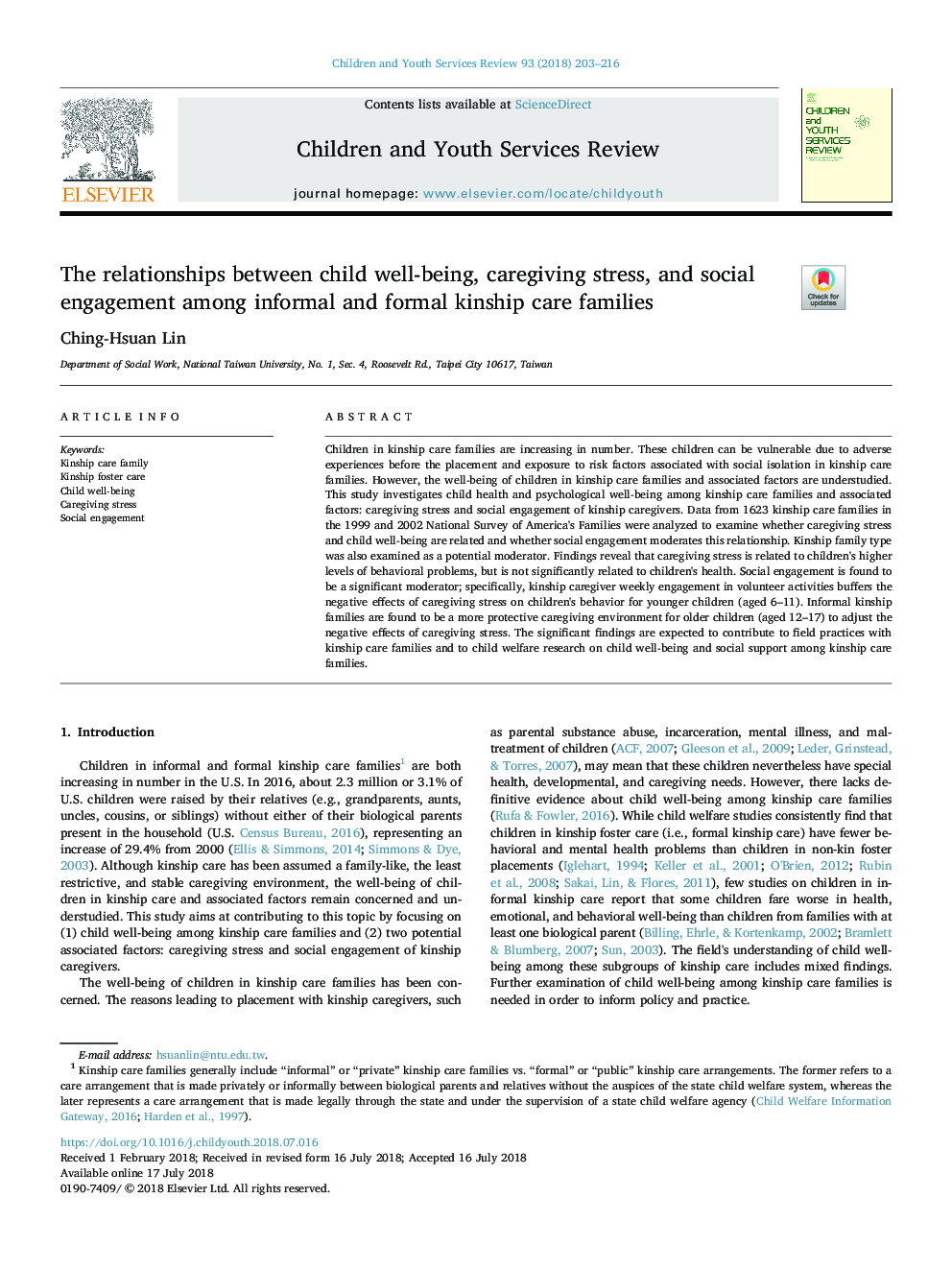| Article ID | Journal | Published Year | Pages | File Type |
|---|---|---|---|---|
| 6832812 | Children and Youth Services Review | 2018 | 14 Pages |
Abstract
Children in kinship care families are increasing in number. These children can be vulnerable due to adverse experiences before the placement and exposure to risk factors associated with social isolation in kinship care families. However, the well-being of children in kinship care families and associated factors are understudied. This study investigates child health and psychological well-being among kinship care families and associated factors: caregiving stress and social engagement of kinship caregivers. Data from 1623 kinship care families in the 1999 and 2002 National Survey of America's Families were analyzed to examine whether caregiving stress and child well-being are related and whether social engagement moderates this relationship. Kinship family type was also examined as a potential moderator. Findings reveal that caregiving stress is related to children's higher levels of behavioral problems, but is not significantly related to children's health. Social engagement is found to be a significant moderator; specifically, kinship caregiver weekly engagement in volunteer activities buffers the negative effects of caregiving stress on children's behavior for younger children (aged 6-11). Informal kinship families are found to be a more protective caregiving environment for older children (aged 12-17) to adjust the negative effects of caregiving stress. The significant findings are expected to contribute to field practices with kinship care families and to child welfare research on child well-being and social support among kinship care families.
Related Topics
Health Sciences
Medicine and Dentistry
Perinatology, Pediatrics and Child Health
Authors
Ching-Hsuan Lin,
